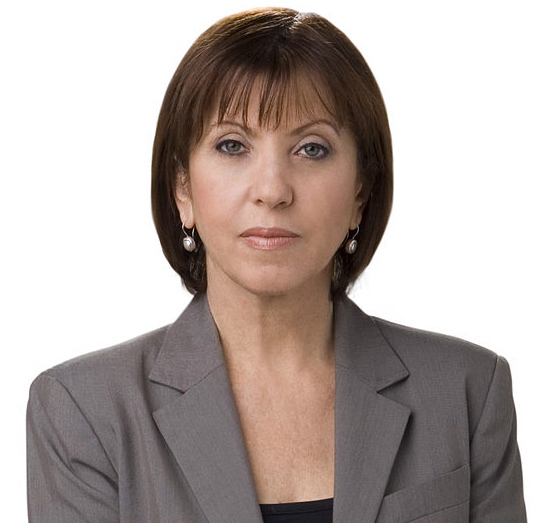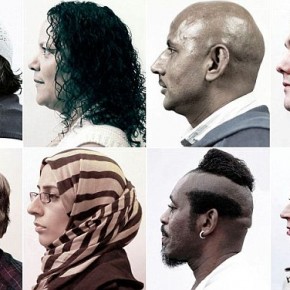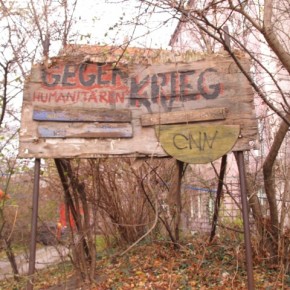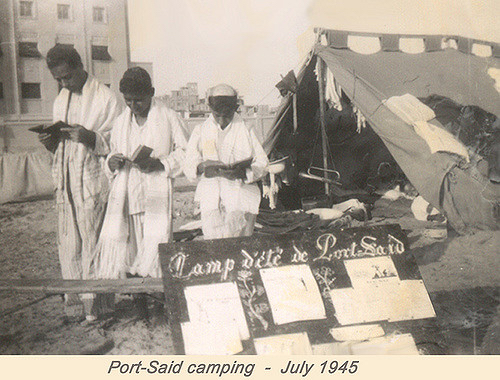J Street’s third annual conference featured a very wide range of speakers over three days, some inspiring, some evoking despair. Perhaps ironically, the best aspect for me was one that raised hope not so much for change in the United States, where J Street does its work, but in Israel.
One of the most discouraging aspects of Israeli politics for many years has been the disintegration of the political left. Many would argue that the Israeli “left” was never all that “left,” but the decline of that “left” has meant that Israelis must choose between a right-wing party, Kadima, and an ultra-right wing party, Likud.
I don’t find the results of that satisfactory.
But when I heard the new chairwoman of the Meretz party, Zahava Gal-On, speak at J Street, I had some small flicker of hope rekindled.
Many speakers talked about the impact of occupation on Israel, how it erodes the country’s democracy and keeps Israel in a state of war. But Gal-On was the only Israeli or American who stood up and said, “First of all it is abusive to the Palestinians.”
That might seem like only a token statement, but it stood out among the speakers, and the passion with which Gal-On made this point could not be missed. She pointed out that there were two laws on the West Bank, one for Jews and one for Palestinians. She didn’t use the word, but that is the dictionary definition of apartheid, and she, being well-versed in international law, certainly knows that.
J Street, of course, aspires to a centrist position, and correctly recognizes that it will get nowhere in Washington or in the organized Jewish community if its pro-Israel bona fides are not recognized. Yet, at some point, if one wants to inspire people and make a case, one has to stand up and say that occupation, settlement expansion, two separate and unequal legal system, the siege of Gaza, the checkpoints, the judaization of Jerusalem…that all these things are simply wrong in and of themselves.
Gal-On made that case, and it’s an important component that can too often be lost to political pragmatism.
My hope was stoked further when I saw an ad, circulating on Facebook, where Meretz directly attacked Kadima. The ad was prefaced with a comment, in Hebrew like the ad: “Tonight, Kadima will elect or re-elect its chairperson and he or she will continue to do nothing.” (Kadima did indeed hold its election, and its former chairwoman, Tzipi Livni, was replaced by former IDF Chief of Staff Shaul Mofaz.)
The ad itself featured these statements: ” This is the same Kadima that attacks democracy. This is the same Kadima that opposes social justice. This is the same Kadima that strengthens the occupation and the settlements.”
This is a much stronger statement than Meretz has made in years, directly attacking the establishment, but aiming not at the Likud government, but at the so-called opposition, Kadima.
Now, don’t get me wrong. Meretz has become a tiny and irrelevant party in Israeli politics, holding only three seats in the current Knesset. At its strongest, in 1992, when it first formed out of a coalition of three older parties (Mapam, Ratz and Shinui,) it was the third largest party in the Knesset, holding a dozen seats.
At J Street, I spoke with a Meretz party activist who is considering running for the Knesset in the next election, and his optimistic projection was that Meretz might hope to win five seats. So, there should be no illusions here that Meretz is likely to change Israeli policies any time soon.
The immediate goal needs to be much more modest, and it’s one that Meretz under Gal-On just might be able to meet. That is restoring the breadth of Israeli political discourse.
In the 1990s, things were different. There was real hope that there would be peace with the Palestinians and, as a result with others in the region. There was a strong Arab-Jewish alliance within Israel that was working toward addressing racism against non-Jewish citizens of Israel, even talking about a constitution for a state whose borders they believed were soon to be finally defined.
Many of those people were ill-informed about the Oslo agreements, its many flaws and the obstacles Israel was putting in front of progress (they were generally very well-informed about obstacles from the Palestinians or other players.) So, when that process collapsed it was easy, because of the context they believed existed, to convince a lot of them that they had been betrayed and duped by the Palestinians.
I can’t say whether that breach can be repaired. However, there is a new generation of Israelis who are not set in their ways. Many of those Israelis, having come of age in the Oslo or post-Oslo era, have had very little contact with Palestinians under occupation, which might mean they can be easily swayed to the right.
And this is where a new Meretz, behind a strong leader like Gal-On, could make a difference.
Israeli politics is far less polite than in the US, or even European. The quiet, liberal tactics of Meretz in recent years are not going to impact the political discourse. Avigdor Lieberman and his fascist cohorts have not pulled their punches, and it’s kept them in a popular position in most polls.
If Meretz can be a moral voice in Israeli politics, it can make a difference in the terms of the conversation. In Israel, a political voice can go from marginal to meaningful. It’s happened often enough in the past, and it can happen again.
Gal-On told her J Street audience that, “In the last few years, people in Israel don’t pay attention to what is going on behind the wall (the Separation Barrier which runs through the West Bank.) They don’t see Palestinians…We are paying the price, in rent, in other costs, as well as in social justice and diplomacy to support the settlements… people in settlements should know there is a price. Right now, they feel great, they have the money and the budget…Putting question of boycotting settlements on the table is important to look at the price we pay for the settlements for forty years.”
Gal-On didn’t minimize the concern over Iran, but she also called out Israel for using it as a way to shut down any discussion of the occupation. “Prime Minister Netanyahu cynically used the Holocaust to scare Israelis about Iran,” she said. “Using such cynical language is (done) to divert attention from Palestinians. Netanyahu does not want to deal with Palestinians.”
And Gal-On also addressed the fact that Israel’s social justice activists have gone to great lengths, for good reason, to separate their protests from the occupation. “In the end, people will understand that you can’t talk about social justice without talking about freedom.”
This is a voice of hope in Israeli politics, precisely because she is not trying to whitewash the sorry state those politics are in.
Zahava Gal-On has made a career out of challenging the status quo, even within her own party. She may well be the last hope Israel has of turning the country away from the far right course Netanyahu and Lieberman have charted.
Photograph courtesy of Wikipedia






Unfortunately for Meretz, it is identified in Israel with a small Ashkenazi elite of Tel Avivites, therefore is limited in its appeal. These are good people no doubt, but the real harbinger of change on the Israeli left is not on the political map yet.